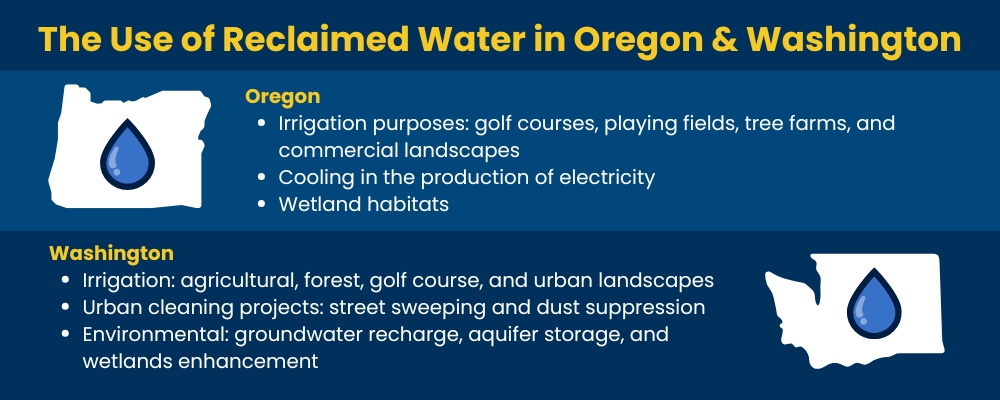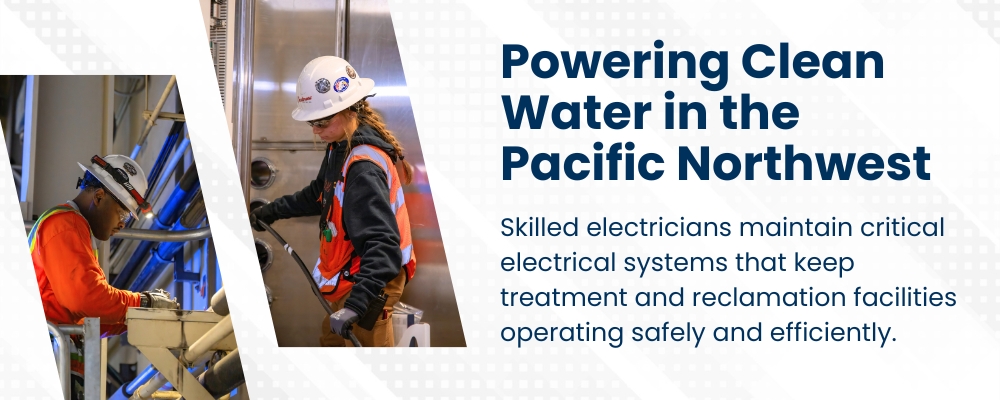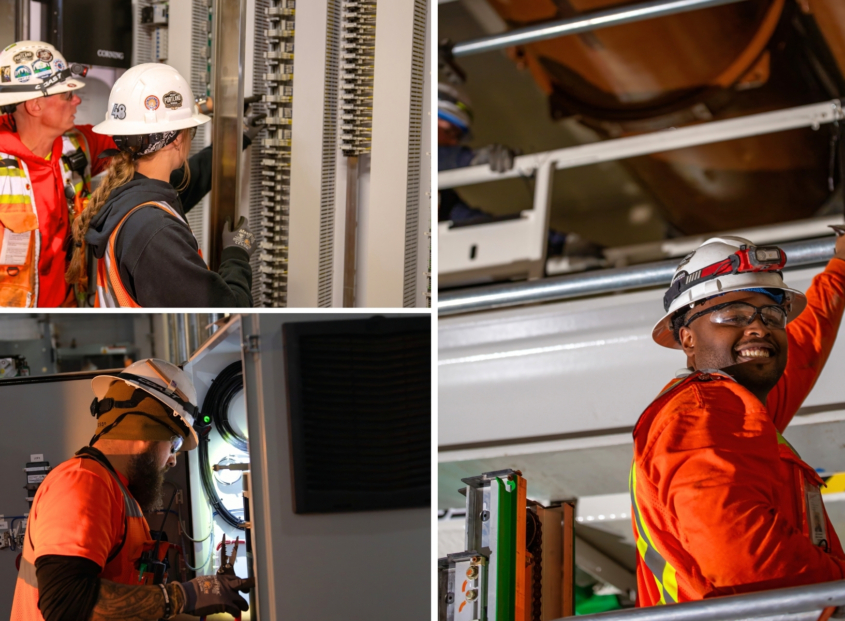How Pacific Northwest Electricians Maintain Safe, Efficient Water Infrastructure
Electrical systems are at the heart of every water treatment and reclamation plant. Pumps, motors, variable frequency drives, control panels, and monitoring systems all rely on skilled electrical professionals to keep operations running safely and efficiently.
But aging infrastructure, tight budgets, and weather disasters are putting extra strain on these systems. Across the Pacific Northwest, electrical teams are finding smarter ways to maintain reliability, improve energy efficiency, and integrate new technologies that keep clean water flowing to millions of people every day.
Water Reuse & Treatment in the Pacific Northwest
Reclamation facilities take wastewater and clean it using advanced methods such as biological treatment, reverse osmosis, and UV light. Oregon has been recycling water for decades, and Washington currently has 30 reclaimed water facilities and plans for more.

Large-Scale Water Treatment Initiatives
Treatment plants are crucial for clean water. They filter, disinfect, and purify water. In the Pacific Northwest, one of the most prominent plants is the Bull Run Filtration Project in Oregon. This $2 million project, which started in the summer of 2024 and paused in 2025, aims to meet its target goals by 2027:
- Filter 135 million gallons per day
- Meet state and federal drinking water regulations
- Remove Cryptosporidium, a disease-causing microorganism, from the water supply
- Update aging pipelines for seismic reliability
The Role of the Electrical Industry in Water Health
Electrical power is necessary for nearly every aspect of water collection, treatment, and distribution. Pumping water from one location to another, producing potable water, and filtering wastewater require electricity and skilled tradespeople.
In the Pacific Northwest, electricians are helping install and maintain critical power generation and transmission equipment. They ensure operational reliability for the construction of new facilities and the operation and maintenance of existing facilities.

6 Essential Electrical Functions Behind Safe, Clean Water
Electrical professionals are crucial in keeping everything running safely, efficiently, and sustainably in the Pacific Northwest’s water treatment and reclamation facilities. Here’s what that work really looks like on the ground.
1) Power Distribution & Control: Install, maintain, and upgrade motor control centers and power systems that drive pumps, blowers, and filters, keeping water moving 24/7.
2) Automation & PLC Programming: Wire and program programmable logic controllers (PLCs) to automate flow control, chemical dosing, and filtration sequencing.
3) Troubleshooting & Maintenance: Diagnose motor, sensor, and circuit faults to reduce downtime and maintain consistent water quality.
4) Instrumentation & Sensors: Install and calibrate flow meters, pH probes, turbidity sensors, and pressure instruments to ensure accuracy and compliance.
5) Backup & Renewable Power Integration: Connect and service backup generators, solar arrays, and battery systems to power facilities during outages and emergencies.
6) Collaboration & System Upgrades: Partner with engineers and plant operators to upgrade outdated infrastructure, improve energy efficiency, and implement intelligent automation.
For electricians, the water sector offers a chance to directly impact public health, environmental sustainability, and community resilience. As the Pacific Northwest continues modernizing its water systems, skilled electrical professionals will remain essential to keeping clean water flowing safely for generations.
Shaping the Future of Electrical Work, Together
The NECA–IBEW Local 48 partnership offers members a supportive community and career-advancing resources through education, training, and networking opportunities, connecting them with experienced mentors, real-world projects, and the latest tools and techniques shaping the electrical industry.
Visit the Oregon-Columbia Chapter of NECA or IBEW Local 48 to learn more about membership and resources.
SIGN UP FOR OUR NEWSLETTER


